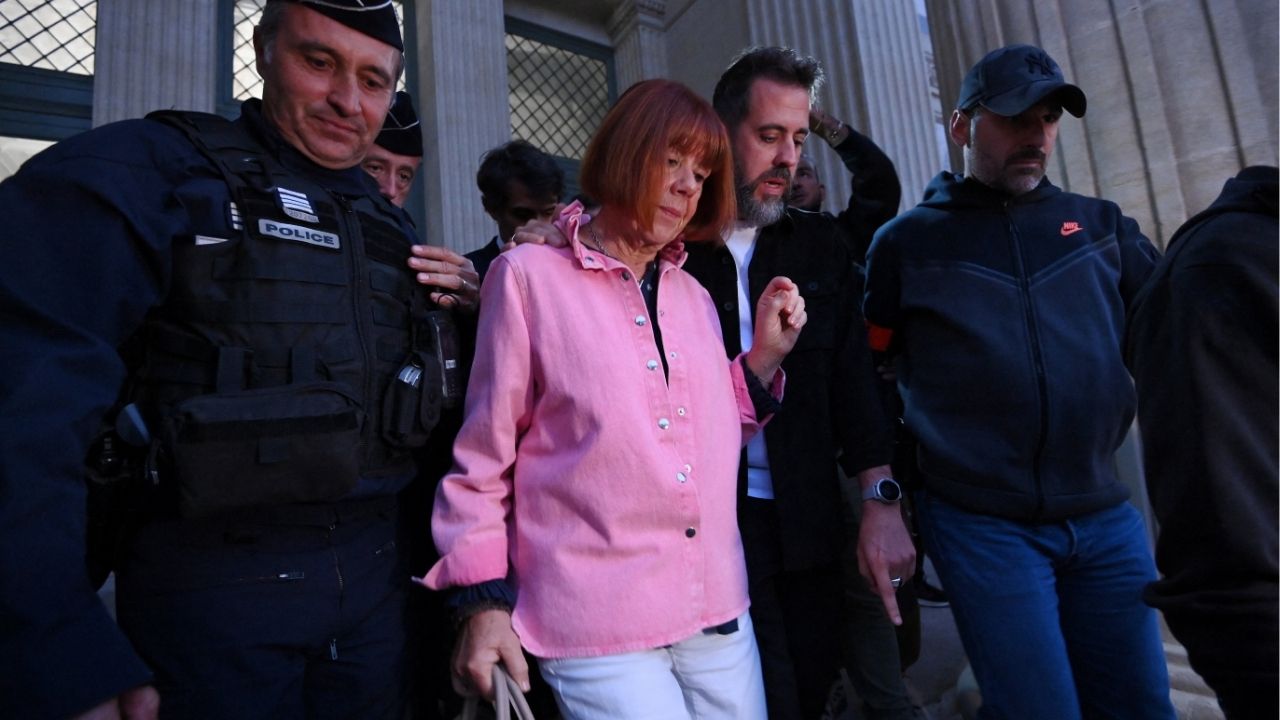French woman Gisele Pelicot, the victim of a mass rape orchestrated by her then-husband Dominique Pelicot at their home in the southern French town of Mazan, and his son Florian are surrounded by French police as they leave after the first day of the appeal trial filed by Husamettin D., one of the 51 people convicted in her rape trial, at the courthouse in Nimes, France, October 6, 2025. (Reuters/Alexandre Dimou)
Share
|
Getting your Trinity Audio player ready...
|
NIMES, France — Gisele Pelicot returned to court on Monday to face the only man, out of 51, who appealed his guilty verdict in a mass rape trial that shocked France and attracted worldwide attention last year.
Pelicot, 72, has become a feminist hero both at home and abroad for waiving her right to anonymity and standing up to her abusers in court, turning the trial into an examination of the pervasiveness of sexual violence.
Her case prompted deep soul-searching in France, spurring debate on whether to shift to a rape law based on consent and prompting the medical community to deepen its understanding of drug-facilitated assault.
Pelicot made no statement as she arrived at court and appeared composed. Several dozen people waited outside the court with banners showing her their support.
Dominique Pelicot, who admitted drugging his wife Gisele and over nearly a decade recruiting dozens of men online to rape her while she was unconscious, was sentenced to 20 years in jail. All of the Frenchman’s 50 co-defendants were also found guilty of rape, attempted rape or sexual assault.
Among them, Husamettin Dogan, a former construction worker in his forties, was sentenced to nine years in prison on charges of aggravated rape. An appeals court in the southern city of Nimes will hear his appeal up until Wednesday.
His lawyer Sylvie Menvielle said her client believed he was participating in a libertine threesome for which he didn’t know at the time Gisele Pelicot had not given her consent, so he could not accept the guilty verdict.
“He was facing someone who was acting with extraordinary manipulation and perversity,” Menvielle told Reuters, referring to Dominique Pelicot.
In French criminal law, intent is crucial in assessing guilt.
—
(Reporting by Antony Paone, writing by Juliette Jabkhiro, editing by Richard Lough and Alexandra Hudson)



















